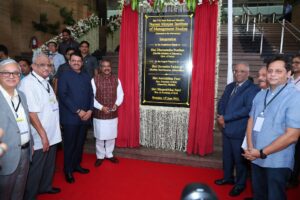
The Indian Health Fund (IHF) has announced that it had chosen four innovators, three related to TB and one related to malaria, in its goal of supporting national efforts to effectively tackle these diseases.
The winners were selected out of the proposals received for IHF’s second Request for Proposals (RFP) on 1st November 2018. The selected proposals aim to leverage technology for improving early detection and prompt treatment along with promoting robust molecular diagnostics feasible for primary health care in low resource settings for expediting diagnosis; developing platform and improving adherence to drugs.
IHF was launched in 2016 by the Tata Trusts in collaboration with The Global Fund, to drive innovations towards key infectious disease challenges in India.
The winners in the field of Tuberculosis are:
Tuberculosis Monitoring Encouragement Adherence Drive (TMEAD)
Proposal: Treatment adherence for TB by SenseDose technologies.
Valetude Primus Healthcare (VPH) Pvt. Ltd.
Proposal: Highly sensitive novel platform technology for tuberculosis detection with last mile connectivity.
Centre for Health Research and Innovation (CHRI):
o Proposal: Creating an ecosystem of faster diagnosis and treatment initiation for TB patients through TruNat.
The winners in the field of Malaria are:
Hemex Health:
About: A start-up that aims to create affordable, life-changing medical diagnostics for under-served people everywhere. Their diagnostic platform is designed to reach populations at risk for malaria and sickle cell disease.
India contributes to 27% of the global TB burden and 68% of all malaria cases in the Southeast Asia region. TB account for over 4.1 lakh confirmed deaths and around 28.7 lakh reported cases respectively on an annual basis in India. Given the gaps in identification and reporting of patients, the true burden of both the diseases in terms of number of patients as well as number of deaths, is estimated to be much higher.
The Government of India has set a target of eliminating TB by 2025 and malaria by 2030, thus giving a clarion call for unprecedented and synergistic efforts by government as well as non-governmental agencies.
IHF is committed to this goal, by bringing together various partners and stakeholders, pooling expertise and resource, fostering innovations and translating these from “lab to last mile”. The RFP 2.0 cycle is a step toward identifying and supporting product and process innovations that have the potential to impact the landscape of TB and malaria, from detection, diagnosis to adherence and operations.



